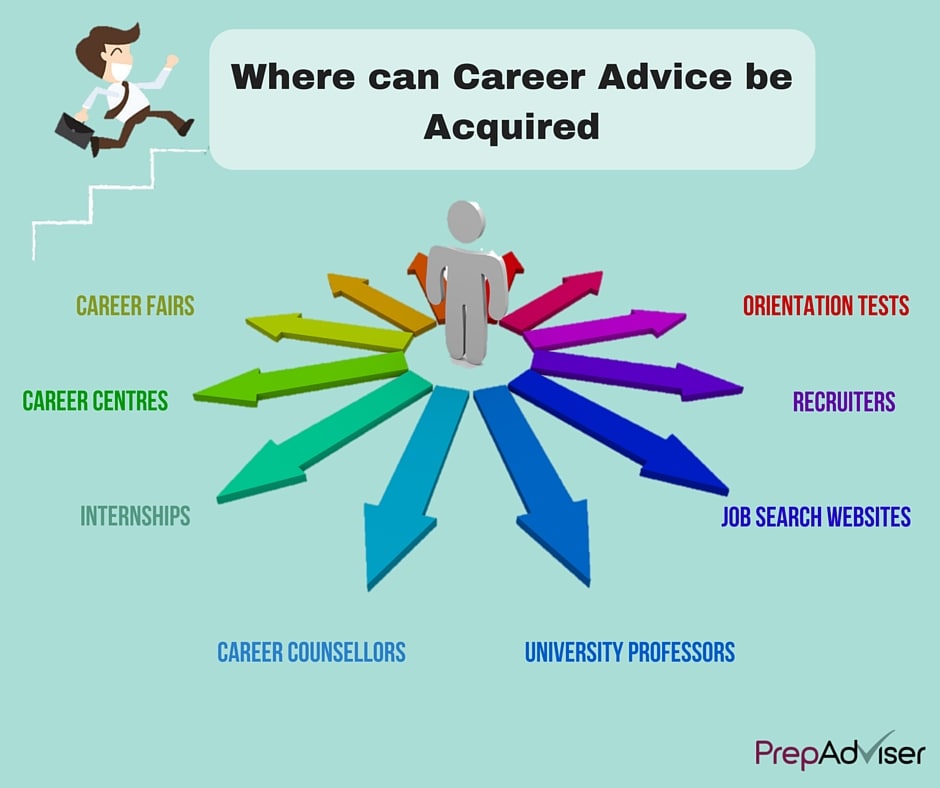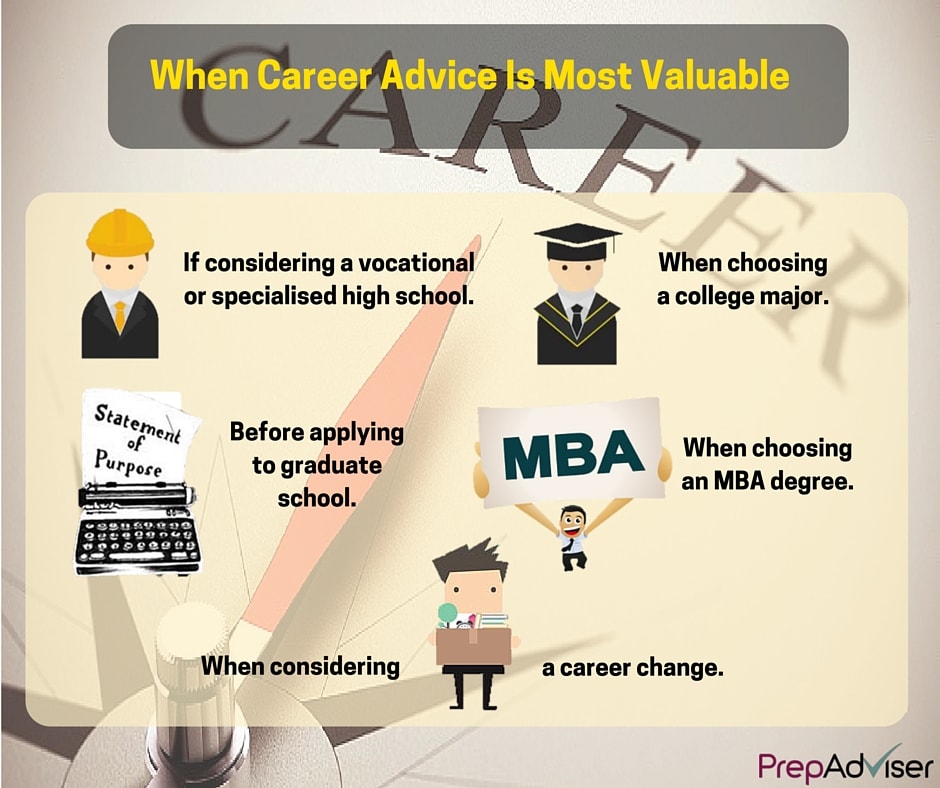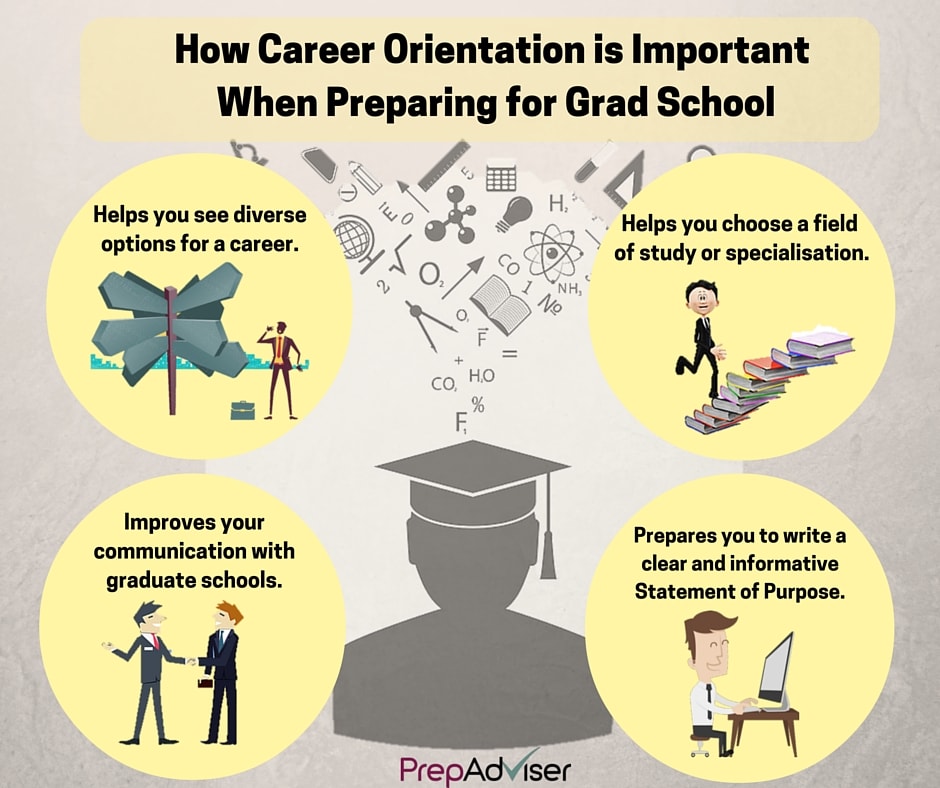Let’s explore what career orientation is, why it is important for your Master's studies, where career advice can be acquired, and when it is needed.
A Master’s degree improves career prospects
Those who want to reach the top positions or even just want to take on more responsibility in their careers should have a Master's degree. HR experts usually agree that job applicants with a Master’s degree possess higher expertise and more maturity. HR trends clearly show that you are more likely to be invited to an interview with a Master’s degree than without one. Also as far as career progression is concerned Master’s graduates are in a better situation.
So far so good – but what programme to choose? The number of options seem to be limitless, so how to prepare to make the right decision?
What is Career Orientation?
Career orientation is basically the specific direction that a person’s career goes in throughout their life. For example, one person doing media studies may decide that they want to be a news anchor while another may want to work behind the sets. At a certain point in their training, these individuals will have to decide on the direction their career is going to take and opt for specific courses to cater to this career direction.
While a news anchor and a director may have received the same basic education regarding the media, once they have decided on their particular career paths, there will be certain courses and skills that they must acquire according to that career choice.
Choosing a specific career path early in life may be difficult unless you are exceptionally passionate about something and are focused on it. However, once you are about to begin your Master's education, it is about time that you chose one.
Some universities and other institutions also provide courses in career orientation that can enable a person to make an informed choice.
How is career orientation important for Master's?
Master's degree studies are specialised studies in a particular discipline. Generic Master's programmes are rare and usually the programmes are specifically oriented around a specific skillset or subject area. For example, Master's business programmes cover Master's in Sales and Marketing, Master's in Finance and Accounting, Master's in Luxury Brand Management, and others.
Check out: How I Selected the University for my Master’s Programme
Hence, it is essential to have a particular career choice and a career plan before pursuing your Master's as your education should aid your career path and allow you to gain relevant skills and knowledge in order to pursue it properly.
However, before you decide which direction you wish to take your career in, it is best to get some advice.
Iliana Bobova, Head of Master’s and MBA Admissions Consulting at PrepAdviser and a certified career counsellor highlights:
One of the major challenges of selecting a Master’s degree programme is the great diversity of offerings. The choice between a Master of Arts (M.A.) and a Master of Science (M.Sc.) seems to be the easier part. But look at just a tiny part of what’s on offer in the field of Marketing alone: International Marketing and Exporting; Marketing and Communication; Marketing and Brand Management; Marketing and Strategic Intelligence; Marketing Management; Marketing, Management & Communication, option Social Web Management; Marketing, Consumption & Society; International Strategic Marketing; International Marketing and Business Development; Marketing, Design and Creation; Marketing Intelligence.
Check out: 5 Ways Master Programmes Differ: MA vs. MSc
Certainly a clear career orientation will help you shortlist the best options for you.
Where can career advice be acquired?
Choosing a particular career path is a difficult choice and many people may be unsure about the path they wish to choose. There are several factors which can affect this decision, including the earnings potential of different fields, their current scope and popularity, job areas and job descriptions related to specific fields, and the individual’s own interests and goals.
However, as the professional world evolves and new disciplines and jobs emerge, individuals may not be fully aware of all the career choices that they have. Hence, it is best to acquire as much information and advice as possible.
This advice can easily be acquired through career centres and career counsellors who can assist in exploring an individual’s interests, goals and potential, and help a person match them to a particular career orientation. Pursuing internships in various fields that may interest an individual is also an excellent way of experiencing different career paths and making an appropriate choice.

When do you need advice most?
Exploring job search websites, attending career fairs and meeting recruiters can also enable the accumulation of information, a delving into recent career trends, and an understanding of employer choices.
Jan Weyer, former International Student Advisor at the University of Hamburg, currently working in the field of international business education, suggests:
For instance if you go to a job search website, search for offers using keywords that come into your mind when you think of your dream job. By browsing through the results you will discover many occupations that you never thought even existed but which may represent what you would love to do. And even better - usually employers mention the academic degree and programme they expect you to have.
It is also a good idea to discuss career choices with friends, family and other successful people that you may have access to in order to fully understand how to develop a career orientation and what factors you should be focusing upon the most.
Career orientation advice can be taken at any time during your higher studies or you can start as early as your teens if you wish. However, it is particularly essential to get advice before you make your Master’s degree choices and send out your university applications.

Try attending seminars and discussions, or making use of the above mentioned advice sources as soon as you begin your last year of a Bachelor's. For those at the start of their undergraduate degrees, it is best to get advice as early as possible!
No matter what career orientation you choose, remember to choose something you are interested in and that is close to your heart! If you love what you do, what you do will love you!
[interaction id="56ebbacd86da243b79a556dc"]




